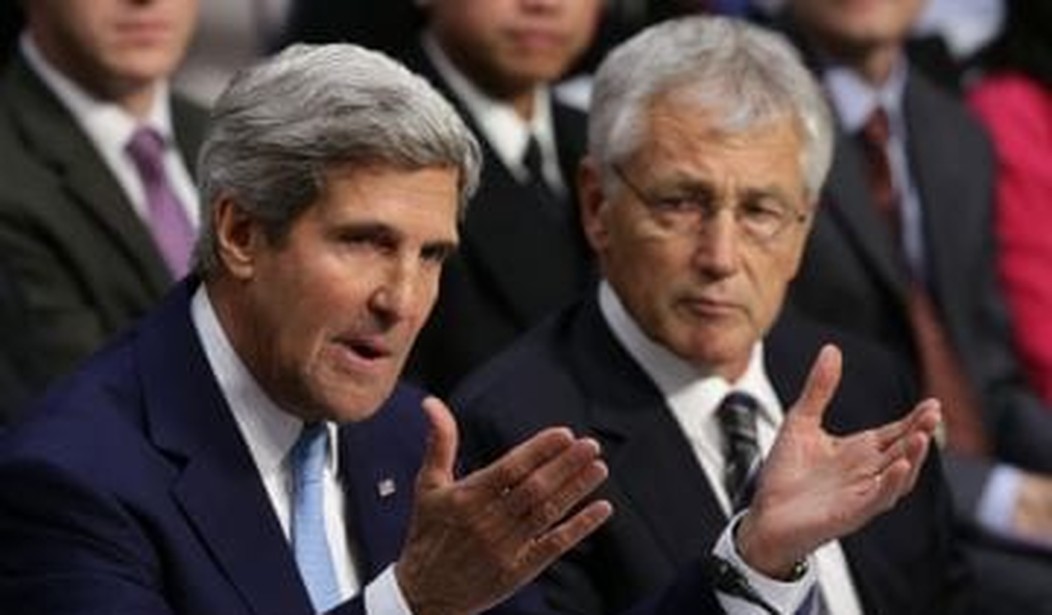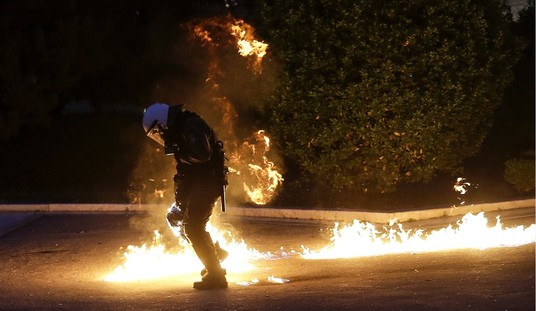WASHINGTON — Defense Secretary Chuck Hagel leaves for a 10-day trip to Asia and the Pacific on Tuesday in the wake of a live-fire military exercise that escalated into an all-too-real exchange of artillery shells between North Korea and the South.
Hagel previously planned the trip to Hawaii for the ASEAN defense ministers’ meeting, followed by stops in Japan, China and Mongolia that are now convenient timing. But reactions across Washington on Monday raised fresh doubt about the ability of the Obama administration to juggle the threat of a young, unstable leader in Pyongyang as it ostensibly prioritizes its Asia rebalancing.
According to The Korea Herald, North Korea sent Seoul a fax about four hours before its lunchtime drills began near the Northern Limit Line. Of about 500 artillery shells fired, 100 fell in South Korean waters.
The South fired about 300 rounds in return.
“The live-fire drills came on the heels of the North’s launches of rockets and ballistic missiles, as well as the threat of another nuclear test. It is part of this provocative package,” South Korean Defense Ministry spokesman Kim Min-seok told reporters. “Given that the North fired the shots southward, we judge the drills to be a deliberate provocation. Those rounds having fallen in our waters were all concentrated in sensitive areas adjacent to Bangnyeongdo, meaning it was a very deliberate, threatening move.”
The exchange came after two tension-stoking events last week: North Korea test-fired two medium-range missiles into the ocean, and South Korea subsequently seized a Northern fishing vessel that crossed into territorial waters.
Hagel told reporters at the Pentagon on Monday that he had been briefed on the incident in the morning. “There has been artillery exchanges. As you know, the fishing vessel was released,” he said. “So the provocation that the North Koreans have, once again, engaged in, is dangerous and it — and it needs to stop.”
The Defense secretary was further asked about the warning from North Korea’s foreign minister that the country, miffed about the condemnation over its ballistic missile tests, would move toward a “new type” of nuclear weapons test.
“Well, as I’ve said, the North Koreans have to stop these provocative actions,” Hagel replied. “And we have been very clear on that. And obviously when I’m in China, that will be a subject that I will discuss with my counterpart in China.”
Over at the White House, press secretary Jay Carney’s reaction could have been interchanged with administration lines about the Russian invasion of Ukraine: that provocations would increase isolation.
North Korea is already the most isolated country on Earth.
“Well, North Korea’s actions are dangerous and they’re provocative. And the DPRK’s continued threats and provocations aggravate tensions and further North Korea’s isolation. We remain steadfast in our commitment to the defense of our allies. And we remain in close coordination with both the Republic of Korea and Japan,” Carney told reporters.
“You know, we saw the DPRK’s March 30th statement. And any nuclear tests or any ballistic missile launches would be significant violations of U.N. Security Council resolutions, including resolutions 1718, and 1874,” he added. “So we call again upon the DPRK to comply with its international obligations and to refrain from actions that threaten regional peace and security.”
The State Department didn’t issue any statement on the artillery fire from Secretary of State John Kerry, who arrived in Israel on Monday night in an effort to pressure Prime Minister Benjamin Netanyahu into accepting a Mideast peace deal by the White House’s April 29 deadline.
“Well, certainly we note with strong concern the DPRK’s deliberate decision to further escalate tensions on March 31st, as you noted, by firing more than 500 rounds of artillery near the Northern Limit Line,” spokeswoman Marie Harf said at the State Department on Monday. “Several of those shells landed south of the Northern Limit Line. This provocative barrage follows a number of short-range and medium-range ballistic missile launches, threats to conduct a nuclear test, and other provocative statements that we’ve seen over the past several weeks.”
“Once again, we call on the DPRK to cease and desist from needlessly threatening regional peace and security, and would note that these kind of provocations only strengthen the resolve of the international community and deepen Pyongyang’s isolation, which, of course, we’ve said now North Korea has a choice,” she said. “They can choose to further escalate or they can choose to come in line with their international obligations and rejoin the international community. Unfortunately, what we’ve seen recently, particularly, is the former.”
It wasn’t even clear whether Kerry had been in touch with South Korea.
“We certainly speak with our South Korean counterparts quite a bit. I can check and see if we’ve spoken to someone, since I’m guessing we have,” Harf said. “I’m just not positive.”
At a House Armed Services Committee last week, Deputy Assistant Secretary of Defense for Nuclear and Missile Defense Policy M. Elaine Bunn told lawmakers that the Pentagon is fixed on increasing missile defense capability for threats including Pyongyang’s.
“We currently have coverage of the U.S. homeland against potential ICBM attacks from states like North Korea and Iran. To ensure that we stay ahead of the threat, we’re taking several steps to strengthen our homeland defense posture,” Bunn said.
“We’re deploying 14 additional interceptors in Alaska and a second missile defense radar to Japan, and requesting funding for the development of a radar that, when it’s deployed in Alaska, will provide persistent sensor coverage and improved discrimination capabilities against threats to the homeland from North Korea.”









Join the conversation as a VIP Member